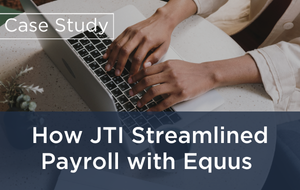Are there tax risks for companies and employees if remote work becomes permanent? Possibly!
We previously covered Permanent Establishment (PE) risk in the first blog of this remote work series. A PE may trigger tax liabilities and filing requirements for companies. This blog covers the personal income tax risk of employees if they work remotely in a country different from their employers, and the related employers’ responsibilities.
 Employment income is generally subject to tax in the country where the employee is physically present to perform the work. During the pandemic, mandatory public health measures sometimes forced employees into remote work. At the same time, many countries introduced temporary exemptions to avoid burdening employees with the additional tax liabilities and employers with the administrative responsibilities that would typically result from remote work arrangements. As these health measures ease, pandemic-related exemptions are expiring. Furthermore, exceptions available for short stays, like those provided by income tax treaties for 183 days, do not apply for permanent remote work. If the country where the employee is working imposes personal income tax, the employee will owe tax on their employment income.
Employment income is generally subject to tax in the country where the employee is physically present to perform the work. During the pandemic, mandatory public health measures sometimes forced employees into remote work. At the same time, many countries introduced temporary exemptions to avoid burdening employees with the additional tax liabilities and employers with the administrative responsibilities that would typically result from remote work arrangements. As these health measures ease, pandemic-related exemptions are expiring. Furthermore, exceptions available for short stays, like those provided by income tax treaties for 183 days, do not apply for permanent remote work. If the country where the employee is working imposes personal income tax, the employee will owe tax on their employment income.
Individuals intending to live permanently in a country are typically treated as resident in that country for tax purposes. Tax authorities generally require employers to withhold income tax on pay made to resident employees. The withholding obligation entails registering with tax authorities, remitting taxes withheld on a regular basis, and meeting reporting or other compliance requirements.
 If the employer has an entity in the remote work location, a new payroll process may not be necessary if the remote-working employee can be added to the local payroll. Otherwise, employers will need to introduce new processes to satisfy the country’s payroll withholding and reporting requirements. Keep in mind that either option may impact finance operations such as inter-company cross-charging and corporate tax. Additionally, the presence of the employee in the location may trigger different employer obligations such as social security contributions, unemployment and risk related insurance, observance of local labor rules including holiday/vacation, minimum pay, work hours/conditions, etc.
If the employer has an entity in the remote work location, a new payroll process may not be necessary if the remote-working employee can be added to the local payroll. Otherwise, employers will need to introduce new processes to satisfy the country’s payroll withholding and reporting requirements. Keep in mind that either option may impact finance operations such as inter-company cross-charging and corporate tax. Additionally, the presence of the employee in the location may trigger different employer obligations such as social security contributions, unemployment and risk related insurance, observance of local labor rules including holiday/vacation, minimum pay, work hours/conditions, etc.
As global circumstances change, more employees may request to permanently change their work arrangements. Personal income tax risk will be an important element for organizations to evaluate as part of their approval process when considering such requests. Employers will want to assess the costs to meet withholding obligations, especially in countries where their companies do not normally operate.
Find out how HR and mobility managers can assess personal tax and other corporate risks with our Remote Work solution.
Also, find out how Global Expansion, a subsidiary of Equus, can offer global payroll support!













